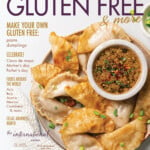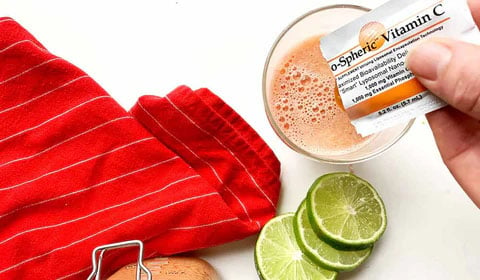Top 6 Supplements for Celiac Disease and Gluten Sensitivity
Updated Apr 19, 2019, Published Feb 20, 2014
This post contains affiliate links. Please see our disclosure policy.
Supplements fill in the gaps of your gluten-free diet. Find out which ones are essential!
1. Multivitamin/Mineral Supplement
Gluten-free foods are often lacking in key nutrients, like iron, zinc, magnesium, phosphorous and B vitamins, because wheat is taken out of the diet and because many gluten-free foods are not fortified with vitamins and minerals, says Melinda Dennis, MS, RD, LDN, nutrition coordinator of the Celiac Center at Beth Israel Deaconess Medical Center and lead nutrition author for CeliacNow.org. A daily multivitamin/mineral supplement typically provides at least 100 percent of the recommended levels of these nutrients. “Your multivitamin/mineral supplement is a base-line protection for getting a lot of the key vitamins and trace minerals that are not present in your diet,” Dennis says.
2. Calcium
“Calcium is really important but it is also easy to overdose. I try to get patients to reach their calcium goal through diet and then make up any difference in a calcium supplement,” Dennis says. Calcium citrate is better absorbed than calcium carbonate. Plus, it doesn’t cause as much gas or bloating. Calcium supplements should also contain vitamin D and magnesium to help with absorption; some people might need vitamin K, too.
Food Sources: Dairy foods, such as milk, cheese and yogurt; dark leafy greens like spinach, kale and collards; calcium-set tofu and soybeans.
3. Vitamin D
“Almost everyone I see needs vitamin D,” Dennis says. “Vitamin D is so protective. It helps heal the small intestinal lining. It helps with hormone regulation. It helps calcium get absorbed. It helps prevent colon cancer. It’s a mood enhancer. A practitioner can easily check your blood level of vitamin D and suggest a dose based on where you live, your diet and age,” she says.
Food Sources: Vitamin D is naturally produced by skin exposure to sunlight. Few foods in nature contain it. Salmon and mackerel (especially wild caught), as well as fish oils, are among the best sources.
4. B Complex or B12
B vitamins can help with flagging energy and fatigue, since they are important for metabolism, red blood cell production and tissue repair. Plus, when the intestine is damaged, the body cannot absorb vitamin B12 properly, sometimes leading to a B12 deficiency. “We often have people on a B complex or on B12 alone or in addition to their multi,” Dennis says. “The Bs are water soluble, so your body mostly gets rid of anything you don’t need. They are good when you’re traveling, have high stress or when fatigued. Be careful, as synthetic B6 (pyridoxine) taken for prolonged periods at high doses can cause nerve damage.”
Food Sources: Meat, poultry, fish, shellfish, milk, eggs and beans.
5. Zinc
Many people newly diagnosed with celiac have low zinc. “Zinc is an often overlooked micronutrient, despite the many critical roles it plays in our health,” Dennis says. “This trace mineral is involved in over 200 enzyme systems in the body and is responsible for growth and development, helping to heal wounds and protecting our immune system. It can also help with quality of our fingernails, skin, gums and hair.”
Food Sources: Oysters, red meat, poultry, beans, nuts, crab, lobster and whole grains.
6. Magnesium
A magnesium deficiency can have many health implications, says Christine Doherty, ND, medical director of Balance Point Natural Medicine, in Milford, New Hampshire, and the founder of GlutenFreeVitamins.com. “Magnesium helps with amorphous symptoms like muscle aching and pain. If your muscles are affected, it can be affecting your gut, your digestion, your energy. With adequate magnesium, you might sleep a lot better. You won’t be having leg spasms in the middle of the night or eye twitches. You also need magnesium to produce digestive enzymes.”
Food Sources: Green, leafy vegetables, nuts and seeds, peas and beans.
Written by Eve Becker, originally published in Gluten Free & More.














Muy buen articulo. Lo pondre en practica.
I”m Celiac. I research every day as staying as well as possible is a constant battle. Have tread many articles be GF & More but this is one of the very best.
Is there a suppliment combination like a multi vitamin that includes all these lacking nutrients in just one tablet?
A good multivitamin might, but I don’t have any recommendations for a specific one that has all the vitamins in the amounts needed.
Go to Pure encapsulations website. They have the purest and best supplements.